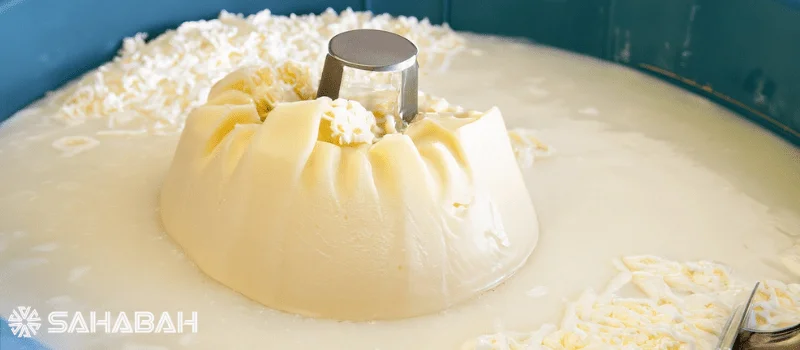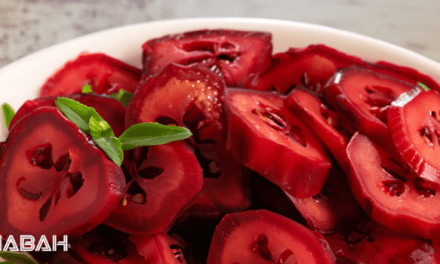Rennet is an enzyme that is essential to making cheese. It causes milk to curdle and separate into solids (curds) and liquid (whey). Most commercial cheeses use rennet derived from the stomach lining of young calves. However, some vegetarian alternatives exist. Determining whether traditional animal-derived rennet is permissible (halal) or prohibited (haram) for Muslims has been a subject of debate.
What is Rennet and Why Does it Matter?
- Rennet is an enzyme that coagulates milk in cheese production
- Sources: stomach lining of young calves, vegetarian microbes, pigs (rarely)
- Makes cheese by separating milk into curds and whey
- Essential for achieving proper texture and flavor in most cheeses
| Type | Source | Halal Status |
|---|---|---|
| Traditional Calf Rennet | Stomach lining of calves | Debatable |
| Microbial Rennet | Vegetarian microbes | Halal |
| Porcine Rennet | Pigs | Haram |
For observant Muslims who follow Islamic dietary laws, knowing whether rennet is halal is important:
“Halal” means permissible under Islamic law, while “haram” means prohibited. Muslims who care about halal status must determine if standard rennet is acceptable.
The permissibility of rennet has implications for cheese choices. This article will examine the evidence on both sides of the debate.
Background on Islamic Dietary Laws
Islam has clear teachings on what foods and ingredients are halal and haram. This shapes Muslims’ diet and food choices.
Overview of Halal and Haram
- Halal: Permitted under Islamic law
- Haram: Prohibited under Islamic law
- Quran specifies forbidden foods like pork, blood, carrion
- Ritual slaughter requirements for meat
- Intoxicants like alcohol are haram
| Halal Foods | Haram Foods |
|---|---|
| Fruit, vegetables, grains | Pork, pork products |
| Meat slaughtered properly | Blood and blood products |
| Seafood | Carrion |
| Dairy | Alcohol |
Animal-Derived Ingredients
Islamic scholars have debated how to handle food ingredients like rennet
If the source is forbidden, like pigs, it is clearly haram. But ingredients from halal animals require further analysis.
Assessing Rennet’s Halal Status
With multiple permissible sources, determining rennet’s status needs thorough review of evidence.
Sources of Rennet and Animal Rennet
There are three main sources of rennet used in cheese production:
Calf Rennet
- Extracted from the stomach lining of young calves
- Traditional rennet used for centuries in cheesemaking
- Most common source of rennet today
Microbial Rennet
- Produced by fermenting vegetarian microbes
- Genetically engineered versions available
- Gains in popularity as vegetarian alternative
Porcine Rennet
- Derived from the stomachs of slaughtered piglets
- Rarely used compared to calf and microbial rennet
- Clearly haram for Muslims
| Type | Source | Usage |
|---|---|---|
| Calf Rennet | Calves | Very Common |
| Microbial Rennet | Microbes | Increasing |
| Porcine Rennet | Pigs | Very Rare |
The prevalence of calf-based rennet leads to questions about its permissibility. But microbial rennet provides a vegetarian option.
Perspectives on Animal Rennet Halal
Islamic scholars have examined whether standard calf rennet is halal. Two main perspectives have emerged:
Majority Opinion – Calf Rennet is Halal
The majority view allows calf rennet:
- Rennet is a byproduct, not flesh or blood
- Transformation into cheese makes it permissible
- Analogized to leather which is halal
“According to the majority of scholars, rennet obtained from animals slaughtered Islamically is pure and can be consumed.”
Minority Opinion – Avoid Calf Rennet Due to Doubt
A minority of scholars say calf rennet should be avoided:
- Status cannot be definitively determined
- Safer to avoid ingredients if doubtful
- Vegetarian microbial rennet available
“There is difference of opinion on the matter, so to be on the safe side it is better to avoid it.”
This debate highlights the complexity around interpreting halal status for new food technologies.
Availability of Halal Alternatives
For Muslims wishing to avoid calf rennet, vegetarian options exist:
Microbial Rennet
- Halal-certified versions available
- Used by some cheesemakers
- May impart slightly different flavors
Plant-Based Rennet
- Enzymes derived from plants like figs
- Used in traditional cheesemaking
- Limited applications but increasing
Checking Labels
- Look for “microbial rennet” or “vegetarian rennet”
- Get halal certification confirmation if unsure
- Call manufacturer if source not specified
| Option | Halal Status | Notes |
|---|---|---|
| Microbial rennet | Halal | Different flavor |
| Plant-based rennet | Halal | Limited uses |
| Calf rennet | Debatable | Check labels |
“Vegetarian microbial rennet provides a halal-compliant alternative for observant Muslims.”
The availability of halal-certified microbial rennet is increasing, providing options for concerned Muslim consumers.
Is Rennet Halal – FAQ
What is rennet?
Rennet is an enzyme commonly used in the food industry, particularly in the preparation of cheese. It is obtained from the stomachs of young ruminant animals.
Is rennet halal or haram?
The permissibility of rennet depends on its source and the method of obtaining it. Rennet obtained from an animal slaughtered according to Islamic law by a Muslim slaughterer is considered halal.
Is rennet halal or haram if it is obtained from a non-Muslim slaughterer?
In the Hanafi school of thought, if the animal was not slaughtered in accordance with Islamic law, the rennet obtained from it would be considered haram.
Can cheese made with animal rennet be considered halal?
Cheese made with animal rennet can be considered halal if the rennet used to make cheese is from animals that were slaughtered according to Islamic law.
Can rennet obtained from an animal slaughtered by a non-Muslim be considered halal?
In general, rennet obtained from an animal slaughtered by a non-Muslim would be considered haram. However, there are different opinions on this matter depending on the specific Islamic school of thought.
Is microbial rennet halal?
Microbial rennet, which is derived from microorganisms, is considered halal because it does not involve any animal source.
What is the ruling on rennet obtained from a pig source?
Rennet obtained from a pig source is considered haram and not permissible in Islamic dietary laws.
Does the lawfulness of rennet depend on whether there is life in it?
No, the lawfulness of rennet does not depend on whether there is life in it. The ruling is based on the source and the method of obtaining it.
Can a non-Muslim consume cheese made with animal rennet?
According to Islamic dietary laws, it is permissible for a non-Muslim to consume cheese made with animal rennet as long as the rennet is halal and the cheese itself is halal.
Is rennet derived from pigs ever considered halal?
No, rennet derived from pigs is never considered halal in Islamic dietary laws, as consumption of pork is strictly prohibited.
Conclusion
The halal status of traditional rennet derived from calves has been extensively debated among Islamic scholars. There are good faith arguments on both sides of this issue:
- Majority opinion that it is halal due to transformation into cheese
- Minority view to avoid it due to doubt over its status
For observant Muslims who avoid calf rennet:
- Alternatives like microbial and plant-based rennet exist
- Checking labels and contacting manufacturers is important
- Halal certification provides assurance of compliance
In summary, there are evidence-based perspectives on both sides of this issue. Muslims comfortable with the majority opinion can consume cheese with calf rennet. But those who wish to avoid it due to doubt have halal-compliant options available. Open communication and tolerance for differing views within the Muslim community would be beneficial as modern food technologies continue to evolve.





